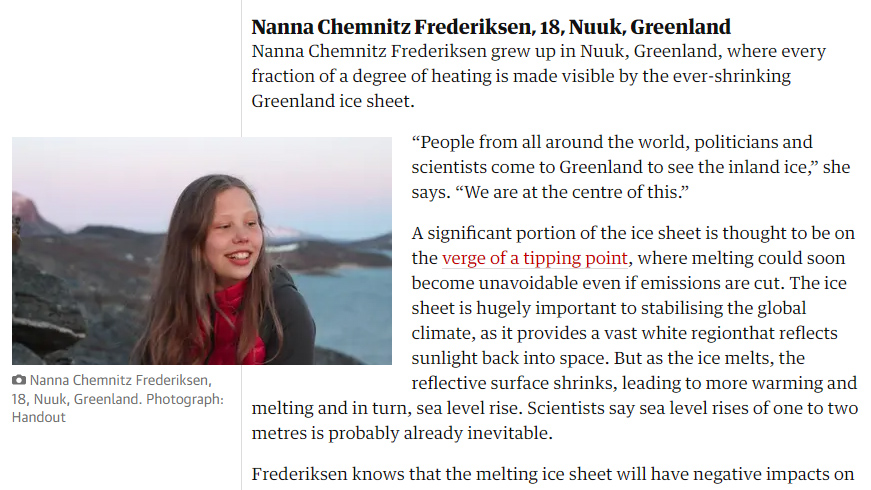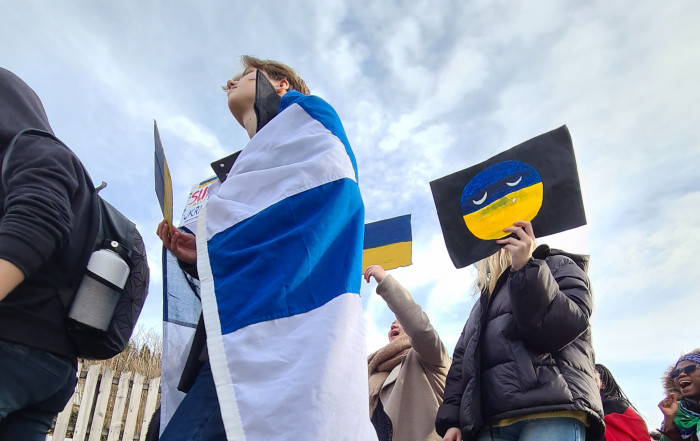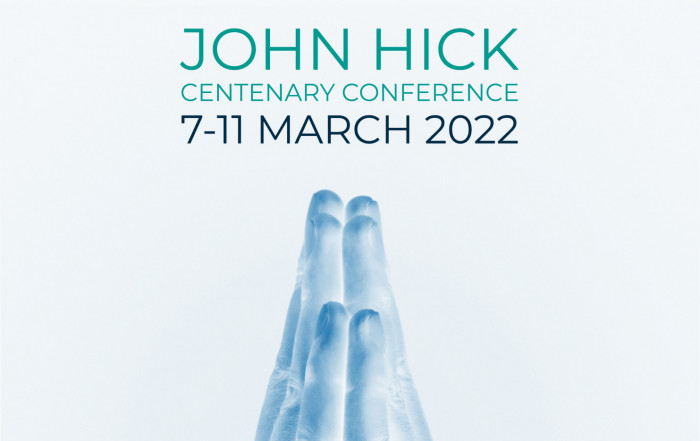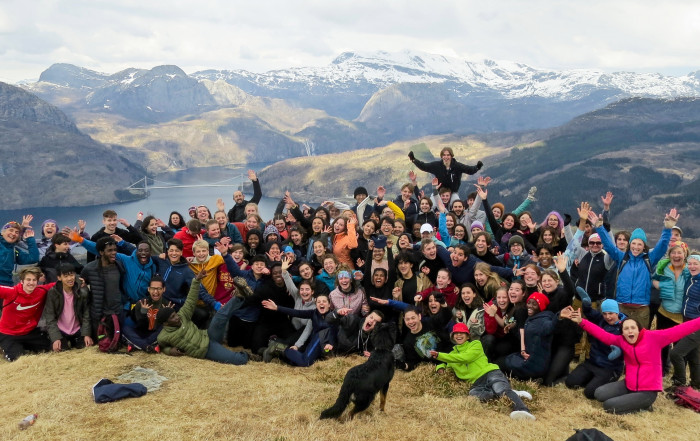“People from all around the world, politicians and scientists come to Greenland to see the inland ice,” she says. “We are at the centre of this.”
A significant portion of the ice sheet is thought to be on the verge of a tipping point, where melting could soon become unavoidable even if emissions are cut. The ice sheet is hugely important to stabilizing the global climate, as it provides a vast white region that reflects sunlight back into space. But as the ice melts, the reflective surface shrinks, leading to more warming and melting and in turn, sea level rise. Scientists say sea level rises of one to two metres is probably already inevitable.
Frederiksen knows that the melting ice sheet will have negative impacts on communities across Greenland, especially in northern settlements such as Qaanaaq where permafrost melting is destabilizing homes and roads and impacting how fishers and hunters operate.
But her real concern lies on the impact it will have globally. “I am not so scared of what the effects of the melting of ice in Greenland will be,” Frederiksen says, “It scares me what effect it can have for the rest of the world.”
Latest News
Walk Against War
«What do we want? Peace in Ukraine. When do we want it? Now!» When the first UWC college was established in Wales in 1962, it was as a response to the political conflict of [...]
John Hick Centenary Conference 2022 at UWC Red Cross Nordic
UWC Red Cross Nordic will celebrate the 100th birthday of the philosopher and theologian John Hick, by organising a week of activities between 7th and 11th March 2022, centered on Hick’s ideas, the [...]
Nobel Peace Prize Nomination
UWC has been nominated for the Nobel Peace Prize! The nomination was made by Alfred Bjørlo, member of the Norwegian parliament for the Liberal Party from the region of Sogn and Fjordane (where [...]




